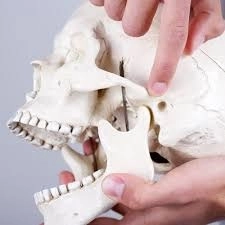
Difficulty Chewing or Opening Your Mouth – Is the Jaw Joint to Blame?
Published on: 2025-06-24 | Written by: Dr. Alia Ahmed Habib, Consultant Oral
Dr. Aliaa Ahmed Habib, Consultant of Oral and Maxillofacial Surgery, explains that many patients suffer from chronic jaw pain or difficulty chewing and opening the mouth without realizing that the issue may lie in the temporomandibular joint (TMJ), which connects the lower jaw to the skull.
In this article, Dr. Aliaa Ahmed Habib discusses the most common causes of these symptoms, how they are accurately diagnosed, and the available treatment options.
What Is the Temporomandibular Joint?
The TMJ is the joint responsible for jaw movements during eating, speaking, and yawning. Any dysfunction in this joint can lead to discomfort that impacts daily life.
Dr. Aliaa Ahmed Habib notes that TMJ disorders are not rare—they’re actually common, particularly among young people and women.
Common Symptoms of TMJ Disorders:
-
Pain in front of the ear or at the jaw joint
-
Difficulty or stiffness when opening or closing the mouth
-
Clicking or popping sounds when moving the jaw
-
Chronic headaches or pain in the neck and shoulders
-
Trouble chewing or a sensation of misaligned jaws
According to Dr. Aliaa Ahmed Habib, many patients ignore these symptoms for years, which worsens the condition over time.
Possible Causes:
Dr. Aliaa Ahmed Habib lists the most common causes of TMJ disorders as:
-
Teeth grinding (especially during sleep)
-
Previous trauma or injury to the jaw
-
Malocclusion or worn-down teeth
-
Arthritis or autoimmune conditions
-
Chronic stress or anxiety
How Is It Diagnosed?
Diagnosis typically includes:
-
Clinical examination of jaw movement
-
CT scans or MRI imaging of the joint
-
Evaluation of bite alignment and dental structure
Dr. Aliaa Ahmed Habib emphasizes that accurate diagnosis is the foundation of effective treatment.
Treatment Options:
-
Conservative treatment: such as warm compresses, jaw exercises, medications, and night guards
-
Joint injections: to reduce inflammation in more advanced cases
-
Surgery: rarely needed, and only if other methods fail
Dr. Aliaa Ahmed Habib points out that most TMJ disorders improve significantly with early, non-surgical intervention.
Conclusion:
Difficulty chewing or opening the mouth isn't always due to dental problems—the TMJ could be the main issue. Dr. Aliaa Ahmed Habib strongly advises seeking medical attention at the first sign of discomfort to avoid complications and improve your quality of life.

